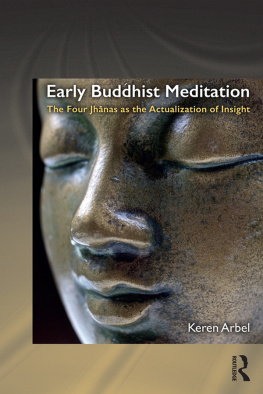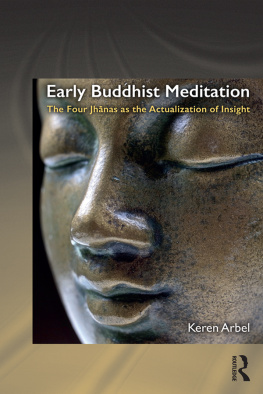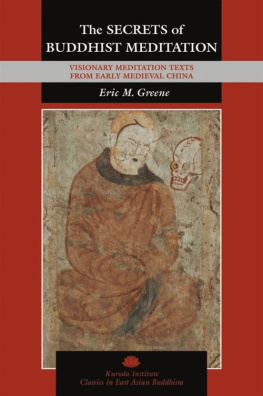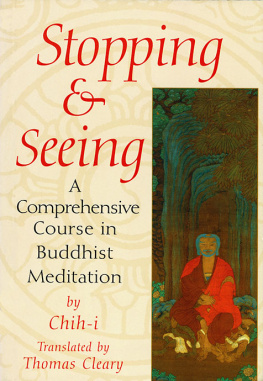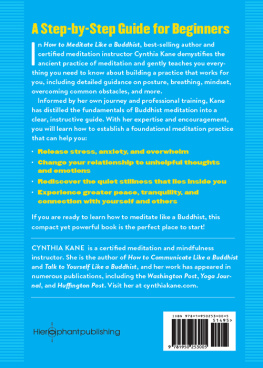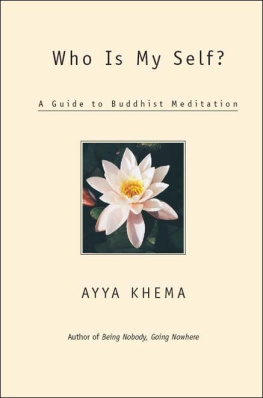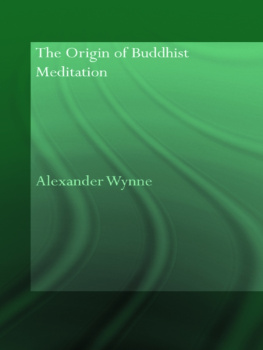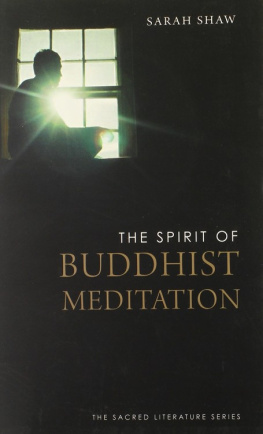Early Buddhist Meditation
This book offers a new interpretation of the relationship between insight practice ( satipahna) and the attainment of the four jhnas(i.e., right samdhi), a key problem in the study of Buddhist meditation. The author challenges the traditional Buddhist understanding of the four jhnasas states of absorption, and shows how these states are the actualization and embodiment of insight ( vipassan). It proposes that the four jhnasand what we call vipassanare integral dimensions of a single process that leads to awakening.
Current literature on the phenomenology of the four jhnasand their relationship with the practice of insight has mostly repeated traditional Theravda interpretations. No one to date has offered a comprehensive analysis of the fourfold jhnamodel independently from traditional interpretations. This book offers such an analysis. It presents a model which speaks in the Nikyas distinct voice. It demonstrates that the distinction between the practice of serenity ( samatha-bhvan) and the practice of insight ( vipassan- bhvan) a fundamental distinction in Buddhist meditation theory is not applicable to early Buddhist understanding of the meditative path. It seeks to show that the common interpretation of the jhnasas altered states of consciousness, absorptions that do not reveal anything about the nature of phenomena, is incompatible with the teachings of the Pli Nikyas.
By carefully analyzing the descriptions of the four jhnasin the early Buddhist texts in Pli, their contexts, associations and meanings within the conceptual framework of early Buddhism, the relationship between this central element in the Buddhist path and insight meditation becomes revealed in all its power.
Early Buddhist Meditationwill be of interest to scholars of Buddhist studies and Asian philosophies and religions, as well as Buddhist practitioners with a serious interest in the process of insight meditation.
Keren Arbelholds a PhD in Buddhist Studies and teaches at the Department of East Asian Studies in Tel Aviv University, Israel. Her research interests include early Buddhism, Buddhist Meditation, Indian contemplative traditions and South Asian Buddhism.
Routledge Critical Studies in Buddhism
Edited by Stephen C. Berkwitz
Missouri State University, USA
Founding Editors : Charles S. Prebish and Damien Keown
Utah State University, USA and Goldsmiths College, London University, UK
Routledge Critical Studies in Buddhismis a comprehensive study of the Buddhist tradition. The series explores this complex and extensive tradition from a variety of perspectives, using a range of different methodologies.
The series is diverse in its focus, including historical, philological, cultural and sociological investigations into the manifold features and expressions of Buddhism worldwide. It also presents works of constructive and reflective analysis, including the role of Buddhist thought and scholarship in a contemporary, critical context and in the light of current social issues. The series is expansive and imaginative in scope, spanning more than two and a half millennia of Buddhist history. It is receptive to all research works that are of significance and interest to the broader field of Buddhist Studies.
Editorial advisory board
James A. Benn, McMaster University, Canada; Jinhua Chen, University of British Columbia, Canada; Rupert Gethin, University of Bristol, UK; Peter Harvey, University of Sunderland, UK; Sallie King, James Madison University, USA; Anne Klein, Rice University, USA; Lori Meeks, University of Southern California, USA; Ulrich Pagel, School of Oriental and African Studies, UK; John Powers, Australian National University, Australia; Juliane Schober, Arizona State University, USA; Vesna A. Wallace, University of California, Santa Barbara, USA; Michael Zimmermann, University of Hamburg, Germany
Tibetan Buddhism in Diaspora
Ana Cristina Lopes
Engendering the Buddhist State

